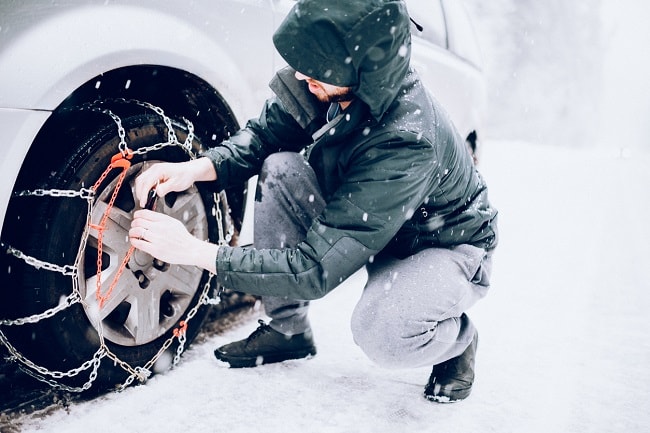1
HOME > Cars >
5 THINGS TO CONSIDER WHEN YOU’VE PASSED YOUR DRIVING TEST
POINTS TO CONSIDER TO KEEP YOU SAFE ON THE ROADS
Written by Menswear Style in Cars on the 24th April 2018

After all those hours spent studying the highway code, many lessons with your driving instructor and months of saving for your first car - you’ve finally passed your driving test and that green, provisional licence will soon be swapped for a shiny, new pink one. So what’s next? Aside from the summer road trips you have planned with your friends, there are important things you need to carefully consider first to ensure you’re prepared for whatever driving has to throw at you. This short guide includes a few points to consider to keep you safe on the roads - now that you have the responsibility and freedom that comes with a driving licence.
1. Insurance
Car insurance prices all come down to your risk factor. Insurers calculate the price of insurance based upon the risk that you present as an inexperienced driver. To combat this, it’s worth considering black box or telematics insurance. These policies are very popular with new drivers, as they can help get you a discounted premium. They calculate the price you pay based on how safely you drive - so careful driving could save you money.

2. Driving with friends
One thing every new driver gets excited about is being able to drive with friends. But it’s important to remember that you are the driver and are responsible for your driving: if you drive recklessly or without care, you could end up with points on your licence or be involved in an accident. If your friends are making it difficult for you to drive appropriately, find a safe place to pull over and explain to them that they are causing a problem. This may seem like a tough thing to do but if you cannot drive safely, don’t continue - for your own safety, as well as those in the car with you.
3. Driving on a motorway
It’s understandable that new drivers will be nervous when it comes to motorway driving. These are the fastest and busiest roads to travel on, making them daunting for those who haven’t used them before. Learner drivers will soon be allowed to drive on motorways during their lessons, when accompanied by an instructor, but for now, if you have never driven on one before, here are a few tips: ? When driving down the slip road to join the motorway, get up to speed as quickly as you can but bear in mind that there could be traffic at a standstill on the road - especially if it is rush hour or the weekend. When the traffic is flowing freely, merge onto the inside lane, ensuring you signal first and check your blind spots. ? If you want to, you can use the middle lane and also the outside lane to overtake people. Remember, on the motorway the speed limit is 70 mph - even when overtaking. ? Be cautious of ‘hogging’ the middle lane - driving in this at a low speed can affect the flow of traffic could result in three points on your licence and £100 fine if you are caught by the police.

4. Weather conditions
You may find yourself driving in weather conditions that you haven’t experienced before on your lessons. Bad weather (Heavy rain, sleet or snow) can affect your driving experience, so consider these tips: Put your windscreen wipers on as well as your headlights - you will need both of these on at all times in rain, fog, sleet or snow. It will help your visibility and ensure other drivers see you. Double the distance you normally leave between you and the car in front of you. You will need more time to stop on wet and slippery roads. If it’s raining too hard for you to see, find a safe place to stop, use a frame barrier, and wait until it slows down or stops completely. Brake gently at all times and when driving on slippery surfaces, such as snow and ice, make sure you are applying light pressure on the accelerator when starting. If your wheel starts to spin, ease off the accelerator. If you are stuck in snow or ice, try putting cardboard under the tires to provide some traction. Keep an ice scraper and de-icer in your car at all times and ensure windows are clear before setting off. Ensure your windscreen washer works to clear it of spray and dirt while driving.

5. Further learning
Even though you have your full licence, there are still advanced driving skills that you can learn to give you a confidence boost on the road. These can also help you get future discounts on car insurance. The Official DVSA Guide to Driving - the essential skills is a useful book to reference to help improve your skills or you can look into a course, such as Pass Plus that takes six hours to complete.
Ready to get out on the road? Bear these tips in mind now that you’ve passed your driving test and enjoy your new independence behind the wheel.
How many attempts did it take to pass your driving test? #auto
— Menswear Style (@MenswearStyle) April 24, 2018
Trending
2
3
4
5
6
7
8
9
10









